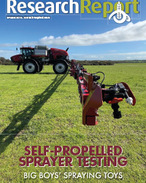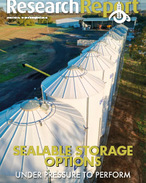This article is 3 years old. Images might not display.
The National Farmers Federation (NFF), Cotton Australia, Grain Growers Limited, and the Ricegrowers Association of Australia have strong advice this summer spraying season aimed at protecting livelihoods.
"This isn't about one sector or industry, it's about an entire farming community coming together to take action to prevent potential losses which can be devastating for farming families," NFF chief executive officer Tony Mahar said.
"We know that the vast majority of farmers are doing the right thing and taking the actions required as part of our best practice methodology. But we need everyone to be on the same page because one mistake can make a huge difference."
Grain Growers CEO Dave McKeon reminded all agricultural stakeholders that it's not just best practice that guides farmers but there are laws in place to ensure compliance when it comes to spraying.
"There is no question that growers need to comply with the laws around chemical spraying, and we support authorities in bringing to justice anyone who knowingly breaks the law," McKeon said.
However, he said cooperation between all growers and respect for what they produce should drive the best outcomes for all.
"We all share a love of the land and many grow a variety of crops. Nobody wants to lose produce because someone has been negligent in their spraying activities and it is the industry itself that can minimise damage."
Ricegrowers Association of Australia Executive Director, Graeme Kruger agrees farmers and their peak-bodies are driving the solutions.
Cotton Australia CEO Adam Kay said cotton was particularly sensitive to spray drift from Group I herbicides (phenoxy herbicides including 2,4-D) and the sector had suffered many millions of dollars in production losses due to off-target damage.
"Suffering spray drift damage is frustrating and has a detrimental financial impact on our growers, which is why Cotton Australia has continued to invest considerable time and money into tackling the issue," Kay said.
The peak bodies issued the following reminders for spraying
1. Know what to do. Read and follow label instructions - it is a legal requirement.
2. Ensure spray applicators are fully trained and accredited.
3. Check the conditions. Monitor conditions before, during and after spraying. Do not spray when there is a surface temperature inversion - likely to occur between midnight and sunrise - or when wind speeds are very low.
4. Consider your neighbours. Always, notify your neighbours of your spray plan.























